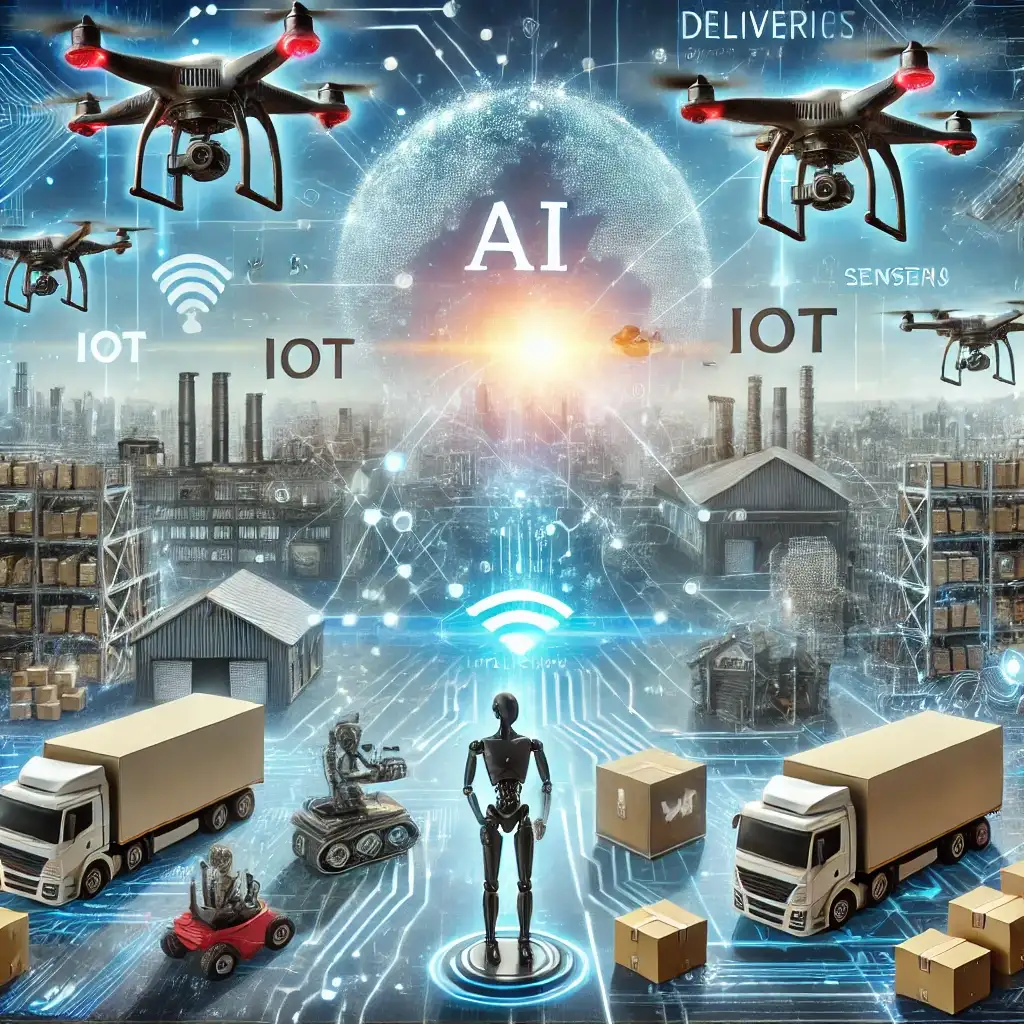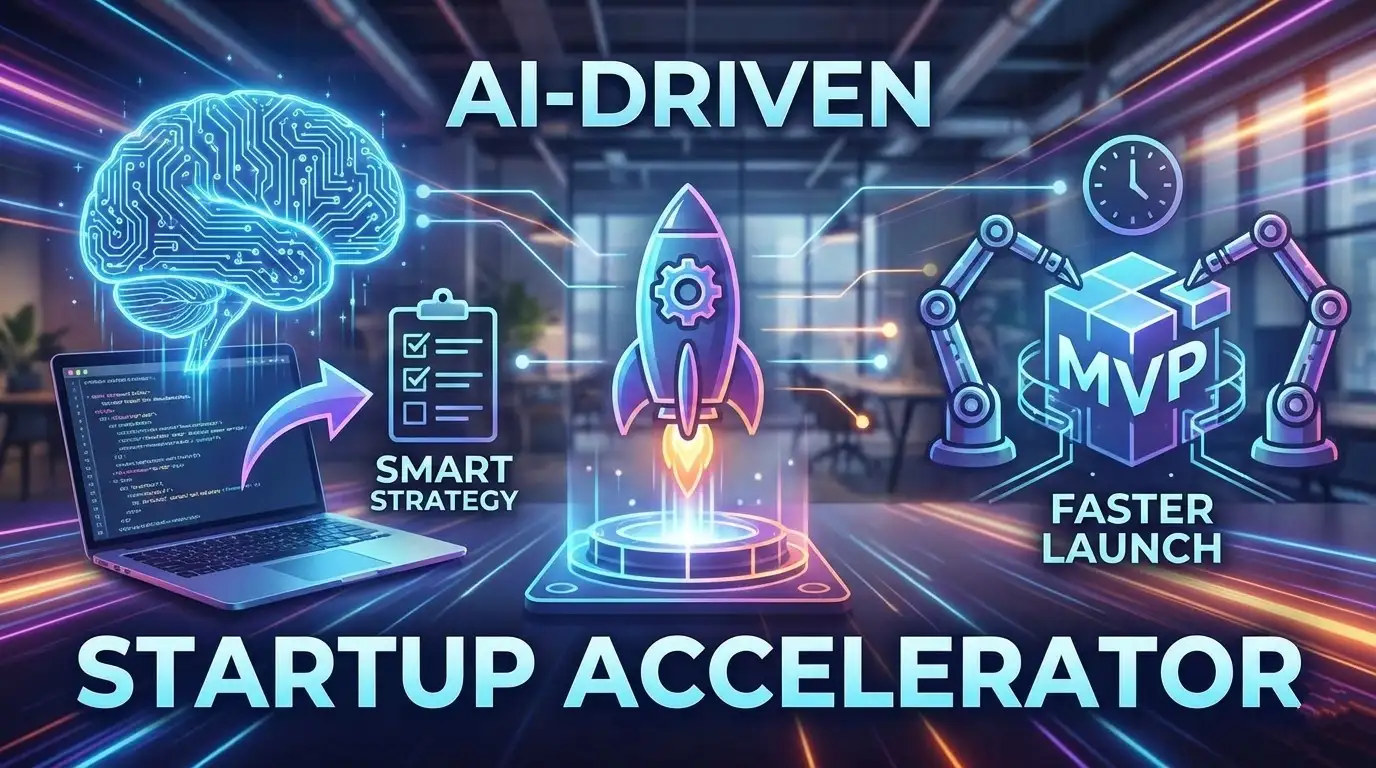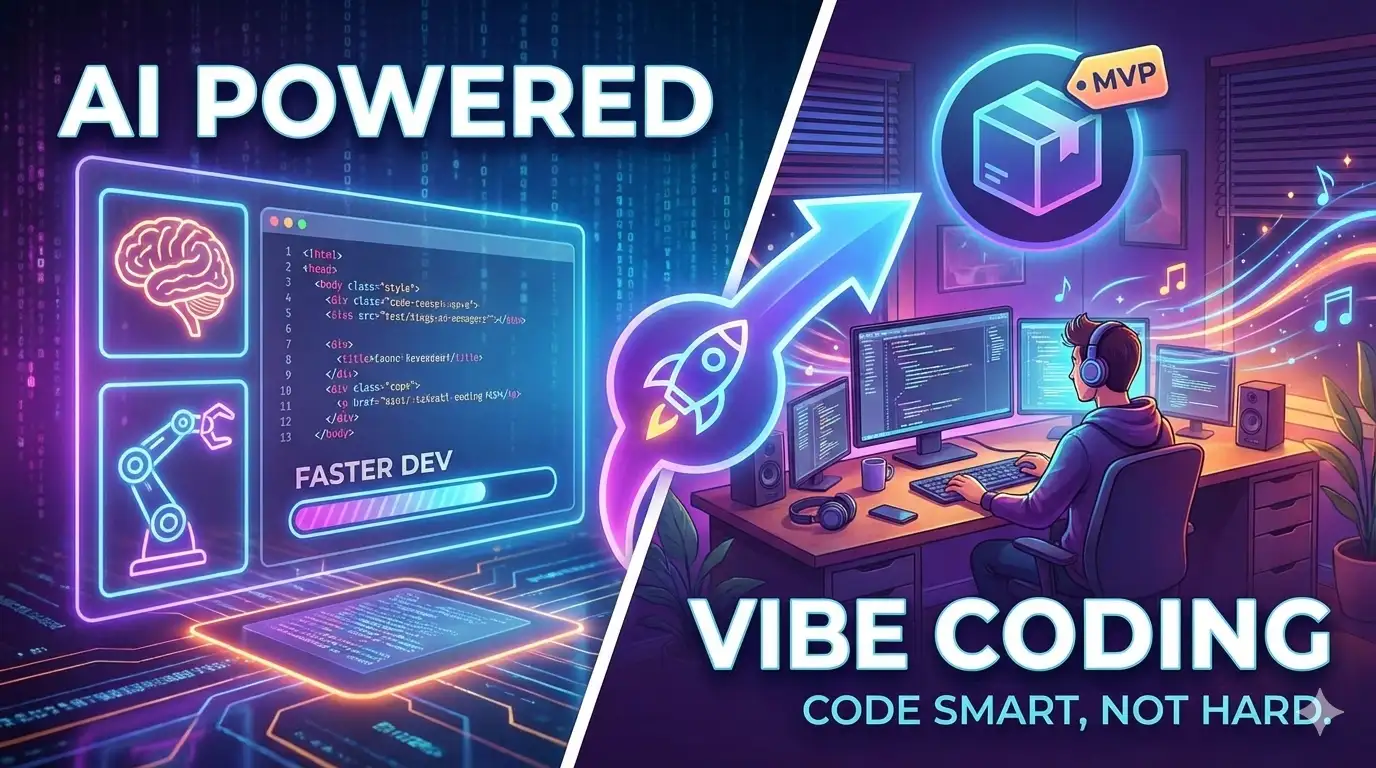How AI and IoT Are Transforming Logistics Software Development
Published by: Vinu VijayanDec 23, 2024Blog
The logistics industry usually must deal with enormous problems. Whether it is planning the most effective routes or controlling warehouse stocks, logistics companies have always had many balls in the air. However, in the present day and age, being in a commanding position takes more effort than just manual work; instead, it requires sophisticated technological solutions that are fully integrated. That's where AI and IoT walk in as the two factors that are changing the way vendors design and develop logistics software systems.
In this blog, we will delve into how AI and IoT are changing the logistics landscape, the new opportunities that they offer, and explain why investing in custom software development is a smart move for logistics companies.
The Power Duo: AI and IoT in Logistics
AI and IoT are akin to bread and butter - each one makes the other better. For instance, while AI does the heavy lifting IoT does a great job of keeping devices constantly connected to each other, at all times. Thus, they have the potential of moving logistics management systems towards a more automated paradigm which is essential for seamless logistics operations and management.
Example in Action: Let us consider a scenario with a fleet of delivery cars that use IOT sensors. These sensors enable tracking vehicle locations, and fuel usage, as well as sensing when maintenance is required. The AI algorithm consequently gets control of this information and utilizes it to determine the most favorable routes, determine maintenance requirements for the vehicles, and limit fuel consumption, hence lowering vehicle idle time.
How AI is Shaping Logistics Software Development
Artificial Intelligence has changed logistics software for the better. Here's how:
1. Predictive Analytics for Demand Forecasting: AI is capable of predicting future events by utilizing historical information. For logistics companies, this translates into being able to manage their inventories effectively to avoid stockouts. Whether you are a warehouse manager or a retailer, predictive analytics makes your plans smart.
2. Route Optimization: Logistics companies armed with AI-powered logistics systems are now able to find multiple avenues that can lead to the most efficient delivery routes, considering traffic, weather, and road conditions alongside the target locations. The outcome is precise: swifter deliveries and reduced costs of operations.
3. Automation in Warehouse Management: For AI, automating monotonous warehouse work translates into smoother warehouse operations. AI-based software can do their job such as: sorting packages or restocking shelves quickly and more accurately reducing errors.
For companies whose focus idea is building logistics software development, utilizing AI is not an option anymore, it is compulsory to be competitive in the market.
How IoT Enhances Logistics Operations
IoT isn't just about connecting devices; it's about utilizing real-time data for more informed decision-making. Here's where IoT shines:
1. Real-Time Tracking: When shipments are tracked with IoT devices, customers are updated with the order's current location as well as what phase in the supply chain it's in. Businesses in turn are provided accurate information and can act quickly to correct any problems including delays.
2. Asset Monitoring: To ensure valuable assets are protected, IoT can be used in a range of ways including monitoring the temperature of a warehouse or the interior condition of a truck. This makes a world of difference for the pharmaceutical and perishable markets where loss and spoilage are very costly.
3. Streamlined Fleet Management: With the help of IoT devices embedded in vehicles, alerts can be sent to the concerned people about the driver's driving styles, how much fuel they are consuming, and what kind of maintenance may be required. These systems reduce costs and improve safety.
In conjunction with AI technology, IoT works even more efficiently. Together they help make powerful logistic solutions that are helpful irrespective of the size of the business.
Benefits of AI and IoT in Logistics Software Development
There are many advantages of combining AI and IoT into logistics systems. The key benefits include:
1. Increased Efficiency: Performing tasks manually is time-consuming and coupled with the increased chances of errors. AI and IoT reduce the need for tasks to be performed manually, which provides a quick turnaround and happiness to customers due to prompt and timely delivery.
2. Cost Savings: Implementation of AI and IoT systems makes a considerable decline in operational costs as they reduce the amount of fuel consumed, and other automate other operational tasks.
3. Improved Customer Experience: Real-time tracking and shorter shipping periods enhance the customer experience. Trust is a crucial component of competitiveness in business strategy and can be achieved by ensuring supply chain transparency.
4. Better Decision-Making: AI-powered tools offer meaningful data analysis and assist in making data-driven decisions. Whether it is a better understanding of future demand or stock management, better insights translate into smarter strategies.
Why Custom Logistics Software Development is the Future
It is important to note that ready-made logistics management software applications can lure customers but then again most of the business requirements remain unsatisfied. In situations like these, custom logistics software development can come in handy. Because addressing problems with bespoke software solutions enables the full utilization of IoT and AI technologies.
Advantages of Custom Solutions:
- Scalability: Bespoke software compliments business growth as it evolves to market alterations.
- Integration: It blends effortlessly with pre-existing tools, cutting down the need for changes.
- Competitive Edge: Out-shining competitors with bespoke logistics software.
If you're looking for a logistics software development company that understands your business goals, custom solutions are the way to go.
Challenges in Implementing AI and IoT
Data Overload:
- IoT devices incorporating extensive data collection, interpreting, and even storing information can cause overload.
- Solution: Invest in high-end AI-powered analytic tools that aid in efficiently processing data and appending value.
Security Concerns:
- Interconnected devices are susceptible to various types of digital security threats.
- Solution: Partner with high-end custom logistics software developers that provide highly secure methods for solving your software issues.
Initial Costs:
- As with most powerful and high-tech devices, employing these systems takes a significant amount of investment.
- Solution: Take a longer perspective and look at the long-term ROI. The efficiencies and cost savings these technologies bring often outweigh the initial costs.
Call to Action: Transform Your Logistics with Evalogical's Expertise
AI and IoT are no longer trends, they have become essential keywords in the business world, particularly in logistics software. At Evalogical, we combine best practices in logistics software development with the latest advancements in IoT and AI technologies. From real-time tracking to advanced analytics, our custom solutions address your unique needs and drive measurable results.
Being a reliable logistics software development company, we assist you in streamlining your business operations, improving profitability, and enhancing customer experiences. Do you want to improve your logistics software systems to the next level? Connect with Evalogical today and discover how you can take advantage of our logistics development services to grow your business to new heights.



 AI-Optimized ColdFusion Servic....
AI-Optimized ColdFusion Servic....
 The Psychology Behind Great UX....
The Psychology Behind Great UX....
 UX Is Not Just Design: How Use....
UX Is Not Just Design: How Use....
 AI-Powered MVP Development: Sm....
AI-Powered MVP Development: Sm....
 Build Your MVP Faster: AI Tool....
Build Your MVP Faster: AI Tool....



Your Trusted Software Development Company